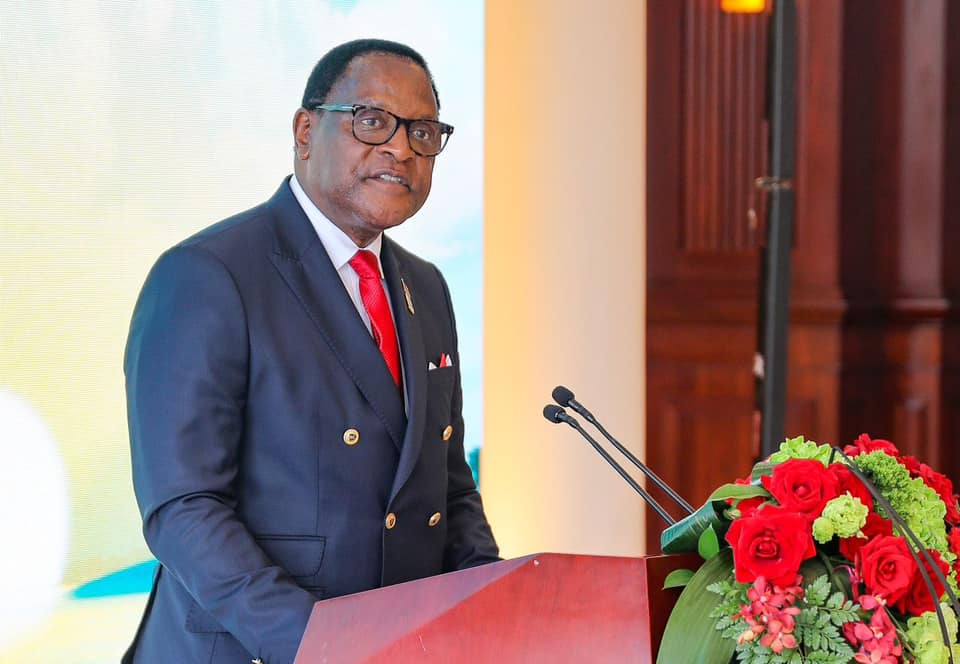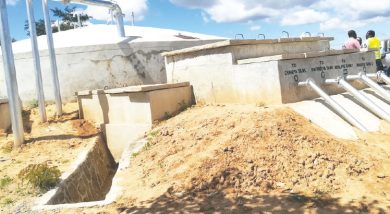African campaignersquery carbon markets
Carbon markets are widely touted as an answer to global warming caused by greenhouse gasses mostly emitted by wealthy nations.
Proponents say the big emitters compensate for climate-related disasters by buying carbon credits from those reducing carbon emissions that fuel climate change.

However, the Africa Carbon Markets Initiative terms this a dangerous distraction from Africa’s interest and development priorities, including energy, climate, biodiversity and resilience.
The findings were released early this month at the inaugural Africa Climate Summit in Nairobi, Kenya, by eight civil society groups led by Power Shift Africa (PSA).
“It’s a wolf in sheep’s clothing that will bite back creating numerous new and serious problems while not providing any real benefits,” warns the report.
The campaigners argue that carbon markets permit wealthy companies, individuals and nations to emit gases that warm the planet.
Africa contributes at least four percent of global carbon emissions, but it bears the brunt of frequent disasters worsened by climate change.
The continent is demanding climate funding from major polluters in the Global North.
The Paris Agreement of 2016 requires humanity to limit global warming to 1.5 degrees Celsius by halving current carbon emissions by 2030 and reducing them to zero by 2050.
There is an increasing hype and rush for carbon credits as an answer to continued activities that cannot be made carbon-free.
Malawi backs voluntary carbon markets launched by Kenyan President William Ruto at CoP27, the 27th United Nations Climate negotiations in Egypt.
N i g e r i a , G a b o n , Burundi, Mozambique, Rwanda, Kenya and Togo also support the initiative which promises Africa over $6 billion by 2030 and over $120 billion by 2050, creating about 100 million jobs in the process.
During the Nairobi Summit, Ruto described this as an “unparalleled economic goldmine”.
“The carbon sinks have the potential to absorb millions of tonnes of carbon annually, which should translate into billions of dollars,” he said.
Malawi has extensive forest and wildlife reserves, which absorb carbon dioxide and refresh the air humans and animals breathe .
During the launch of the Malawi Carbon Markets Initiative in Lilongwe in June, President Lazarus Chakwera said carbon markets constitute an opportunity “to embrace sustainable green economy and participate in the global fight against climate change”.
Malawi can make $600 million every year by selling carbon credits, he projected.
However, the new report shows that this rhetoric will only benefit the polluters, especially fossil fuel companies and the market brokers, while driving greenhouse emissions beyond climate limits and “putting neo-colonial obstructions in Africa’s development pathways”.
The civil society urges African leaders to reject carbon markets, saying rising global emission swill undermine the Paris Agreement and prove devastating for Africa.
“The carbon credit producing projects— renewable energy, avoided emissions or nature projects—do not nullify the emissions of the polluting companies that buy them,” it reads, lamenting “simplistic calculations” to project the jobs to be created.
Fadhel Kaboub, associate professor of economics at the University of Denison in the US, says Africa missed an opportunity to harmonise climate, energy, adaptation and development strategies during the summit.
He explained: “Instead, we find false solutions proposed in the Nairobi Declaration like carbon markets which simply amount to cheap pollution permits for global north historic polluters.
“These big emitters can pass on the cost of the permits to their customers in the Global South, displace farmers and indigenous communities, enrich speculators and middlemen and continue polluting while offering crumbs as climate finance.”
The report cites multiple undesirable consequences for local communities, including land grabbing and human rights abuses as planting new forests and solar farms for carbon credits requires land.
“Those already living and using that land fear that scaled up ‘land-grabs’ will put the security of their livelihoods and cultures at risk,” the campaigners warn.
Amnesty International described as flawed and illegal the forced eviction of Sengwer indigenous people from Embobut Forest in Kenya to pave the way for carbon market projects.
Power Shift Africa ex e cut i v e di r e c t o r Mohamed Adow says eviction of communities from the land they owned and farmed for generations for carbon offsetting projects ripple in Kenya, the Democratic Republic of Congo and Columbia.
The civil society feels the “unregulated carbon market only benefits middlemen as the projected $6 billion does not represent the financial flows from the offsetting company to African carbon cutting project, but “financial transactions over the years”. They urge African leaders to explore other financial flows for a zero-carbon future and sustainable development.






One Comment